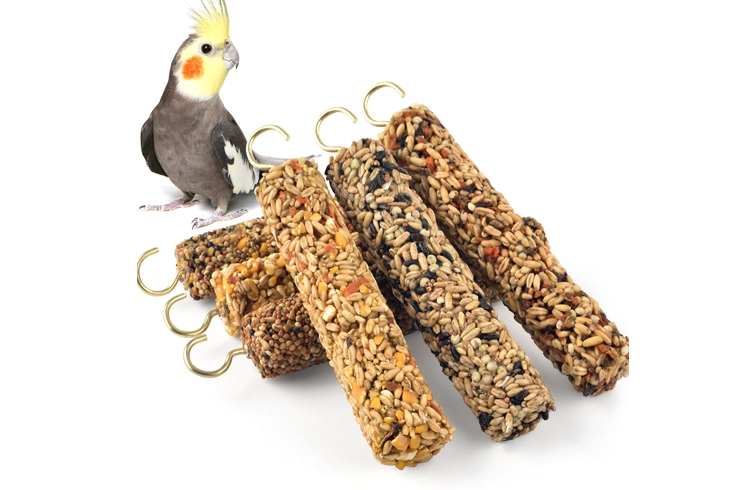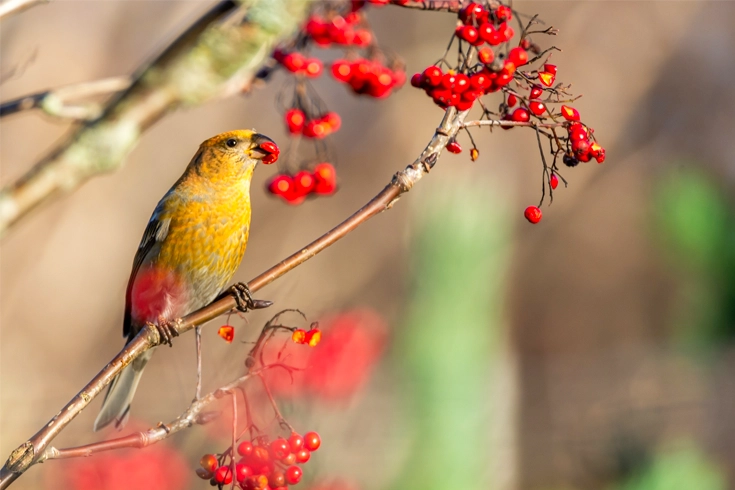
What Is Wild Bird Food? From Seed to Song Choose Perfect For Your Bird
One of the most delightful little creatures that can bring liveliness and excitement to any garden or backyard is none other than birds. Feeding these birds is certainly the easy hack to keep them coming back to your yard until or unless they are pet birds. Giving wild bird foods to them is not simply a pastime but a caring way to show support, particularly during scarce and migrating months.
However, not every food is created equal when it comes to bird diet. Giving them the right and balanced food guarantees their happiness and health, attracting a lot of species to your backyard or garden. This Pet Life Expert’s inspirational guide is about the best wild bird food. Also, we’ll cover some special and common foods for feeding feathered friends with useful seasonal feeding tips.
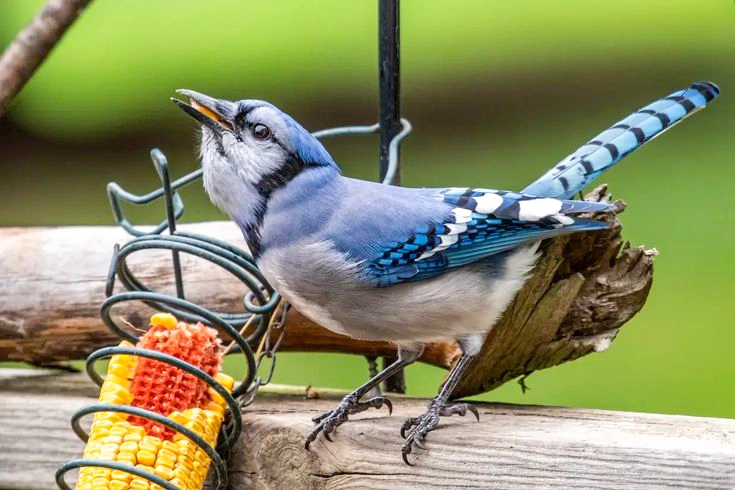
Why You Should Use Wild Bird Food: 5 Key Advantages
It is more than simply a hobby to feed wild bird foods because it not only contributes to bird populations’ well being but also connects you with nature. Wild bird food is the most nutritious food source that not only improves mental health but also comes with nutrient-rich food.
It increases bird population and specifically good for migration support. By providing them food and that too, in winter or other harsh months, you majorly support their survival. Here are some of the prominent benefits described:
- Improved bird health
- Migration support
- Survival during tough times
- Bird watching opportunities
- Potential for habitat mitigation
Introducing Some Common Wild Bird Foods
Like dogs and cats, wild birds also need some specific foods that fulfil their nutritional needs and help them survive throughout. Not every food is good for your birds as you may need to be precautious when it’s about their health, care, and nutrition’s. Here’s a list of some common food options for wild birds.
Seeds
Sunflower and Nyjer seeds are two options in wild food categories for birds. Black-oil sunflower seeds with thin shells are easy to crack for birds, and striped sunflower seeds with thicker shells are perfect for larger birds. Additionally, Nyjer Seeds (thistle seeds) are perfect for attracting goldfinches, siskins, and finches.
Grains
A little, round grain called millet is frequently included in bird feed mixtures. Birds that feed on the ground, such as juncos, sparrows, and doves, find it appealing. For convenient access, scatter it on the ground or in low feeders. Additionally, you can go for a budget-friendly cracked corn free from molds, as moldy grains can harm birds.
Fruits
Birds with sweet teeth like to eat fresh apples, so you can slice them up and remove the seeds before adding them to the feeders. Additionally, you can serve them berries either fresh or dried along with other types like cranberries, blueberries, and raspberries.
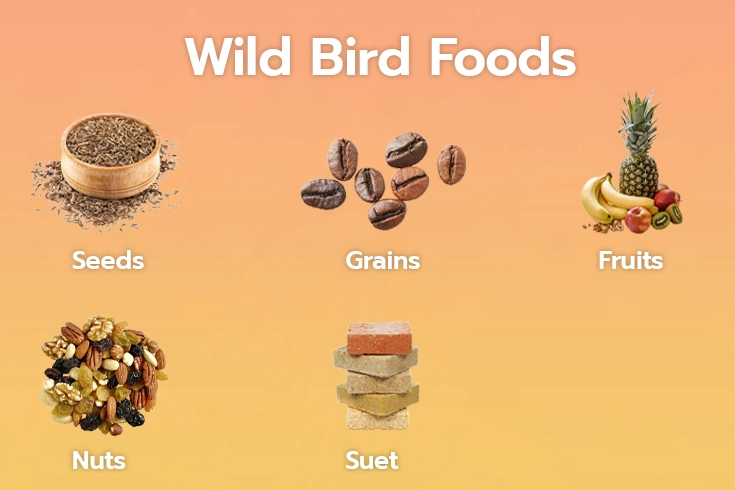
Suet
Made from animal fat, suet is a high-energy diet that is ideal for winter feeding. Because of its high calorie content, birds such as woodpeckers, chickadees, and nuthatches flock to suet. You can make your combination with fruit, nuts, and seeds, or serve it in feeders as premade suet cakes.
Nuts
For woodpeckers, titmice, and nuthatches, unshelled, unsalted peanuts make a healthy snack. To make choosing easier, distribute them on a level surface or put them in mesh feeders. Additionally, some animals, like woodpeckers and jays, eat acorns in the wild by nature. You may emulate their natural diet by providing them with food in your yard.
Introducing Some Special Wild Bird Foods
Now let’s have a look at some specialty diet options for wild birds to serve them the best food.
Nectar
Hummingbirds are highly attracted to flowers that provide them with nectar, which is a juicy and sweet solution. However, when it comes to attracting those wild birds, you can prepare this solution by yourself using one part sugar and four parts waters. Be sure to not use harmful ingredients like artificial dyes.
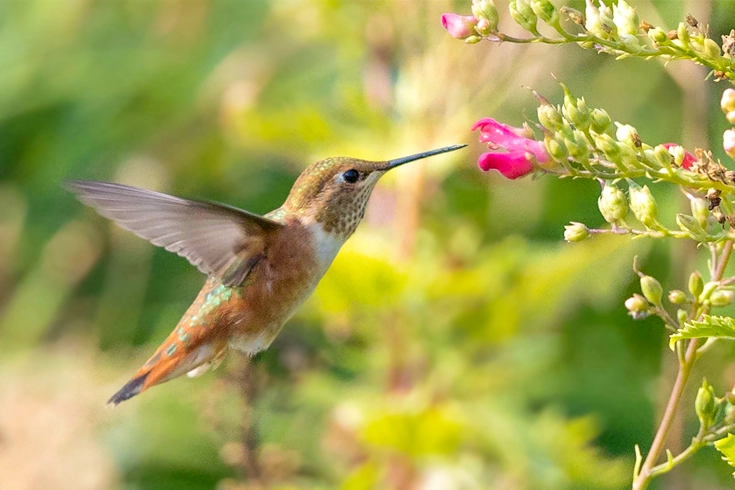
Mealworms
Some insect-eating birds are highly attracted to mealworms, which are a protein packed treat for them. Bluebirds, robins, and wrens can eat them live or dried. Serve them in a specialized feeder, which is useful for nesting season, providing extra energy to their birds.
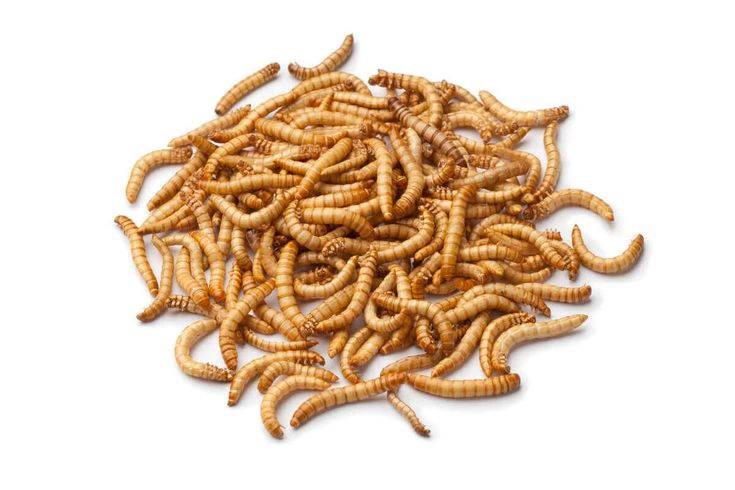
Commercially Prepared Bird Foods
Bird seed mixes are good for different types of species. However, it is advised to be aware of fillers like milo or wheat, which are not liked by birds and are harmful to them. Prefer a premium mix of high quality sunflower seeds, nuts, fruits, and other nutritional ingredients.
Seasonal Considerations for Bird Feeding
When it comes to wild birds food, there are some seasonal considerations you must look out for.
Winter Bird Feeding
The most challenging time for birds is undoubtedly winter when they need to survive in harsh weather with limited food sources. You can offer high calorie dense foods like peanuts, sunflower seeds, and suet. These food items help birds maintain their energy levels. Make sure the feeder is filled during this season, as birds can land anytime.
How to Feed Wild Birds in Spring and Summer
Additionally, during warm months, birds usually pay attention to their young’s growth and nourishment. During this period, you can offer them protein rich foods like fruits, mealworms, and suet. Eliminate high-fat foods from their diet, as they are not required if natural food is served in abundance.
To Wind Up
Giving wild bird food to your feathered friends can help them grow and turn your yard into a beautiful space. You may give your feathered guests a safe and healthy environment by knowing what to feed them, adhering to seasonal recommendations, and avoiding dangerous behaviors. In this comprehensive guide, you will get to know some of the common and specialty diet options to feed your birds, allowing them to visit your yard often to eat healthy and nutritious food.
FAQs | Frequently Asked Questions
Which Food Is Best To Give Year Round to Wild Birds?
The most suitable and nutritious food to give to wild birds are suet and sunflower seeds. These are the versatile food options that can align many wild birds.
Do Wild Birds Eat Rice?
Yes! You can feed uncooked rice to your wild birds in a moderate amount. In addition, it is safe to give cooked rice as well, as long as it is plain and unsalted.
How Do I Safely Introduce Suet to Wild Birds?
Before introducing suet to your wild birds, add them to a specialized feeder. Next, hang it in a shaded area during warm months to prevent spoiling and melting.
Why Must Bird Bread Not Be Given to Birds?
It is highly recommended to not give bread to your birds, as it not only lacks essential nutrients but also can expand in a bird’s stomach, resulting in harming bird health.
Can Chickens Eat Wild Bird Food?
Yes! Chickens can eat wild bird food but avoid making it a primary food source rather give as an occasional treat. Because it is not nutritionally balanced for chickens.
Can Wild Birds Eat Parakeet Food?
If parakeet food contain grains and seeds, wild birds can definitely eat it because wild birds usually eat it. However, avoid giving processed pet foods as it might not be nutritionally good and contain additives.
Can Ducks Eat Wild Bird Food?
Yes! Ducks can eat wild bird food including grains, seed mixes, oats, wheat, millet, and sunflower seeds. Aside from these options, not every food is good for every bird.
Can Parakeets Eat Wild Bird food?
Yes parakeets can eat some wild bird food elements, it is not suitable at all for main diet. Wild bird mixes are formulated for different species with varying nutritional requirements.
